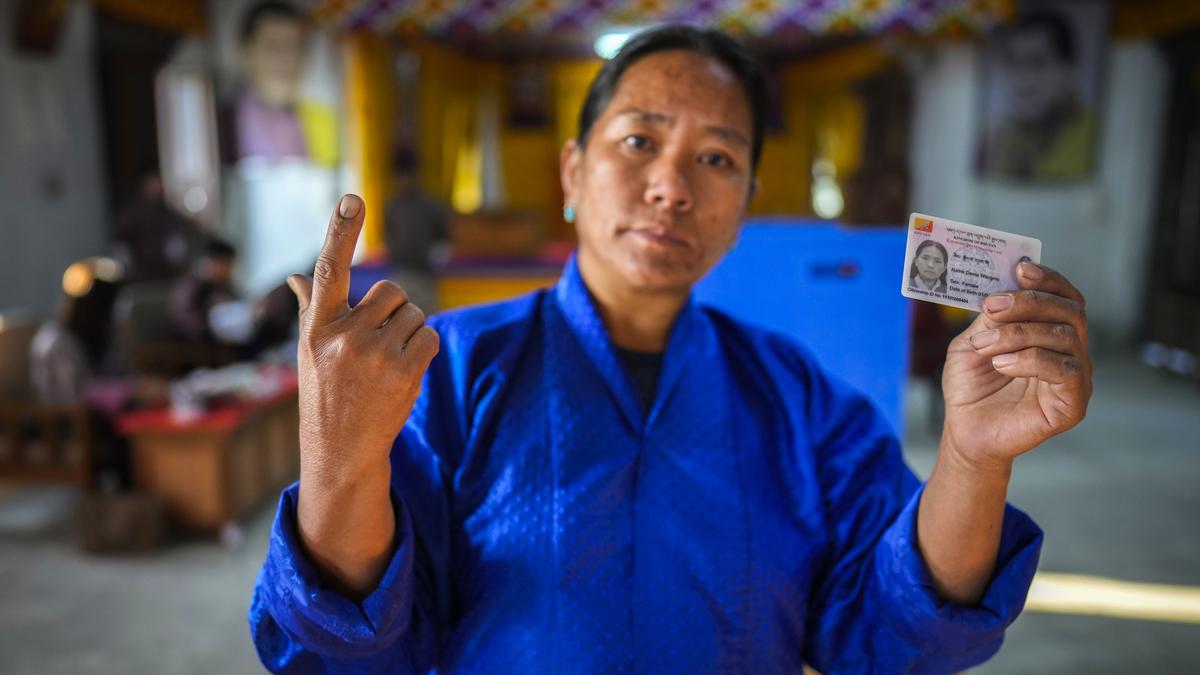
Voters begin casting ballots in Bhutan, where an economic crisis looms large
The Hindu
Voters in Bhutan, a landlocked country in the eastern Himalayan mountain range with a population of around 8,00,000 people, began casting their ballots on January 9 to elect a new Parliament, hoping the politicians make good on their promises to fix the nation’s economic crisis.
Voters in Bhutan, a landlocked country in the eastern Himalayan mountain range with a population of around 8,00,000 people, began casting their ballots on January 9 to elect a new Parliament, hoping the politicians make good on their promises to fix the nation's economic crisis.
Some voters are expected to trek in freezing temperatures to reach the polls to elect a set of 47 Parliamentarians who will form the next government. Results are likely to be announced later in the night.
The national elections are the fourth in Bhutan after it saw a transformation from a traditional monarchy to a Parliamentary form of government in 2008. Ballots include only the People's Democratic Party of former Prime Minister Tshering Tobgay, and the Bhutan Tendrel Party headed by former civil servant Pema Chewang. A primary round of voting in November eliminated three other parties.
Bhutan lies sandwiched between China and India, with both neighbours vying for influence in the country. Bhutan's severe economic crisis played a major role in campaigning. According to the World Bank, Bhutan grew at a rate of 1.7% over the past five years.
With unemployment a chronic problem, an exodus of young people in search of higher education and jobs abroad is undermining the country's economic potential.
In a bid to overcome the economic challenges, Bhutan's King Jigme Khesar Namgyal Wangchuck announced in December plans for a megacity in Gelephu that will have zero-carbon industries with foreign investment.

LGBTQ+ couples in Thailand register their marriages on the first day of law giving them equal status
Thailand legalizes same-sex marriage, granting LGBTQ+ couples equal rights and recognition, marking a historic milestone in Asia.

















